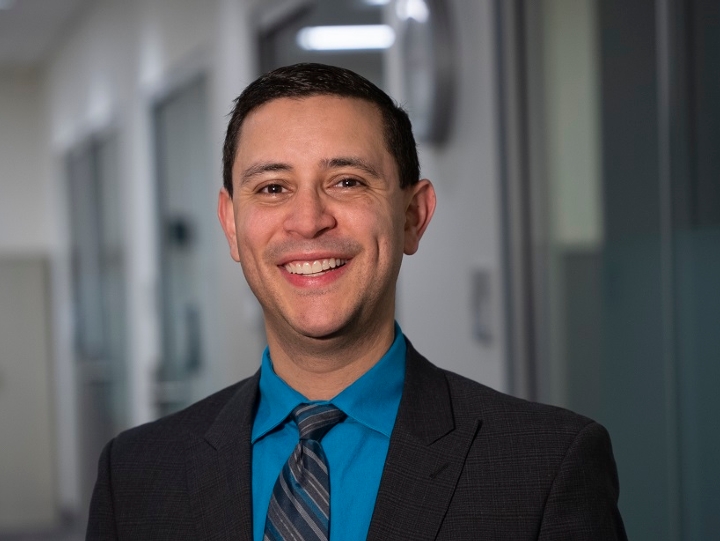
The Challenge of Accountability
Student Success Faculty Graduate Undergraduate
November 12, 2022
JCC Connexions, Vol. 8, No. 4, November 2022
Fostering Moral Development: An Ongoing Column in JCC Connexions
As with most academic terms, the fall 2022 semester has provided lots of interesting and unique opportunities to hear from students about their experience. At the University of Massachusetts Chan Medical School (UMass Chan), students shared their concerns regarding a new policy around course evaluations and potential impacts on their academic careers. I sat in a town hall where students freely shared their opinions, often not positive, about the policy change. They have also shared their views on a number of other issues, some which are related to broader societal concerns and others which are specific to our institution. While this story is not new or uncommon on most college campuses, there has been an element to the students’ expressions of frustration which has felt a bit different than in previous years.
I reflected on what about the interactions have felt different. For what it is worth, while I thought there was a bit of credibility in the concerns students shared. I also felt some of the concern was not entirely fair—the institution has an obligation to ensure students do what is needed and expected, and it is reasonable to have accountability mechanisms built into the process to aid that goal. In some ways, the approach they used to explain their concern framed it as the students not wanting to be accountable for meeting expectations. I am sure this is not what they intended, but it is how it landed with me and other colleagues with whom I processed after the town hall.
Resistance to Accountability
In other areas and with other policies this semester, I have seen other instances of a resistance to accountability from students. When I further tried to make sense of the students’ perspective, I wondered how much of the concern is indeed a desire not to be held accountable for meeting expectations. This is not to say the institution does not have an obligation to be fair and equitable in setting those expectations—quite the contrary. In most respects, the institution bears the bigger responsibility of ensuring any policies which directly impact students is structured in a fair and equitable manner with maximum transparency and ample opportunities for students to provide feedback prior to adoption and implementation. And if the institution feels that burden has been met, then the students must hold up their end of the bargain—they must meet the expectations of the policy and accept the consequences when those expectations are not met.
All of this hubbub makes me wonder how much students’ ability to be held accountable (or hold themselves accountable) has been eroded. I cannot quite put my finger on it, but my sense is students have seen too many examples, both in popular culture and with higher education professionals and the institutions we serve, of a failure to meet expectations be ignored, diminished, or rationalized. In popular culture, one only needs to look at the many examples of celebrities or prominent sports figures saying or doing something foolish, ridiculous, or hurtful with few real or significant consequences to contextualize that view.
The Early Days of Covid
Putting my finger on how this lack of accountability showed up in higher education was a bit more difficult. While I think on some level students have always struggled with being held accountable (one of the many reasons there are theories about college students’ moral development), I was reminded of the early days of the COVID-19 pandemic. For obvious reasons, most higher education professionals (faculty and staff alike) were extremely accommodating to students’ requests, regardless of what they were; I personally saw several instances were faculty and staff waived rules and policies which would otherwise have been enforced due to the overwhelming impact the pandemic caused; heck, I am sure if I thought hard enough I would remember doing the same thing. And it made sense: We all collectively were going through a traumatic experience and trying to provide grace, care, and human kindness to help each other get through it (and it may take many years to know the full extent of the COVID-19 pandemic’s impact, if ever).
Reasonable Level of Grace
My fear is one of the byproducts of that understandable flexibility is it created an expectation that level of support would continue once the COVID-19 pandemic became more successfully managed. This is not to suggest one of the lessons higher education professionals should take forward is to abandon all forms of kindness to students. My question is how do we get back to a reasonable level of grace and re-instill a willingness to be accountable in our students? Can we put the proverbial toothpaste back in the tube?
I do not know if I have a right answer to this question. My hope is the answer is yes – at some point, we need students to understand a failure to meet expectations, even ones which may to them seem frivolous or capricious, requires the institution to hold them appropriately accountable (we can revisit the discussion on what constitutes appropriate accountability at another time). I think it is possible students may have gotten comfortable with not being uncomfortable or not having to be accountable. It is up to us to challenge our students despite their not being overly challenged these last two years (again, not totally unreasonably so), even when they resist; or in certain instances, especially when they resist. I believe it is appropriate for higher education professionals to reclaim the role of primary moral development officer. This role often requires us to be willing to let students sit with discomfort and be accountable for meeting our expectations. I fear failure to do so may bring a heavy, perhaps unbearable cost.